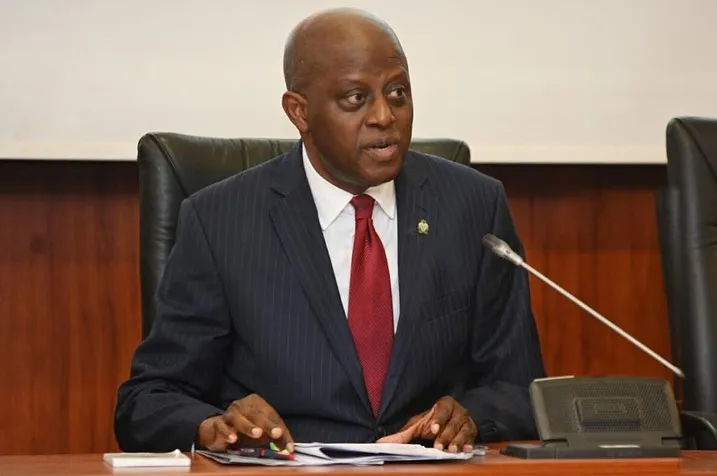The Monetary Policy Committee (MPC) of the Central Bank of Nigeria (CBN) has retained the Monetary Policy Rate (MPR) at 27.5 percent, marking its second consecutive hold in 2025 following six straight hikes throughout 2024.
CBN Governor Olayemi Cardoso announced the decision on Tuesday in Abuja after the conclusion of the MPC’s 300th meeting. He said the Committee chose to pause to allow members time to assess short-term economic developments and evaluate the effectiveness of previous tightening measures. “The Committee was unanimous in its decision to hold policy… to better understand near-term developments in the economy,” Cardoso said.
In addition to holding the benchmark interest rate, the CBN maintained the asymmetric corridor around the MPR at +500/-100 basis points. The Cash Reserve Ratio (CRR) was left unchanged at 50 percent for Deposit Money Banks and 16 percent for Merchant Banks. The Liquidity Ratio also remained at 30 percent.
The MPC’s decision was influenced by a notable easing of inflationary pressures. According to the National Bureau of Statistics, headline inflation slowed to 23.71 percent in April 2025 from 24.23 percent in March. On a month-on-month basis, inflation dropped significantly from 3.9 percent to 1.86 percent. Food inflation declined to 21.26 percent, while core inflation also eased to 23.39 percent from 24.43 percent in the previous month.
While acknowledging these improvements with cautious optimism, the Committee noted that inflation risks remain. Persistent upward pressure continues to stem from high electricity tariffs, strong demand for foreign exchange, and broader structural challenges in the economy.
The MPC expressed support for the Federal Government’s recent reforms aimed at stimulating local production and reducing dependency on imported goods. Cardoso stated that such initiatives, if sustained, would help dampen inflationary pressures in the medium term.
Turning to external reserves, Cardoso reported that Nigeria’s gross reserves rose by 2.85 percent to $38.90 billion as of May 16, 2025, compared to $37.82 billion at the end of March. This level represents approximately 7.6 months of import cover. The Committee welcomed the ongoing narrowing of the gap between the official and parallel foreign exchange markets and urged fiscal authorities to intensify efforts to grow foreign exchange earnings from oil, gas, and non-oil exports.
The Committee also reviewed recent GDP performance. Nigeria’s real GDP expanded by 3.84 percent in the fourth quarter of 2024, up from 3.46 percent in the preceding quarter. Growth was driven by both oil and non-oil sectors, particularly the services industry. Despite this positive trend, the MPC expressed concern over a recent decline in crude oil prices. Cardoso attributed this development to increased supply from non-OPEC countries and uncertainties in global trade policy, warning that these factors could affect fiscal revenues and the government’s budget implementation.
The MPC also discussed developments in the banking sector. The Committee noted relative stability and called on the CBN to maintain strong oversight during the ongoing recapitalisation of banks. Cardoso concluded by affirming the Committee’s commitment to pursuing policies that anchor inflation expectations, reduce exchange rate pressures, and support overall macroeconomic stability.
The next MPC meeting is scheduled for July 21 and 22, 2025.


